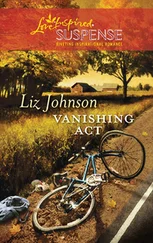Martin had told her what he was going to do, if she just had the sense to read it. He had made a big deal out of lifting the canoe and walking around the parking lot with it before he would buy it. He was going to portage. Nothing else made sense. He wasn’t going to take the easy way up the whole string of lakes. He was going to stop at Big Rock Lake, lift his canoe and all the provisions and gear he had bought, and walk through the woods with them to the next chain of lakes. He had put the roads far behind him, and now he was going to leave the water, too.
He was going to a place where there was no easy way, where his strength and his stamina would separate him from any likely challenger. He had passed here three days ahead of her—maybe four now—and he hadn’t needed to go cautiously. He was wearing out his pursuers, so that when he met them he would have had four days to rest, hide his camp, and survey every inch of the surrounding country. Anybody who came after him would arrive with a canoe on his back that he had carried for miles, and would probably be in a state of exhaustion—fly-bitten, scratched, and half dead.
She looked at her map as she paddled. He would go west from Big Rock Lake to Charley Pond, then down into Lake Lila or even Lake Nehasane, and there he would stop and wait. He had come so far already that it was highly unlikely that anyone at all would follow. It was May, and the weather from now on would be tolerable, if not balmy. He had enough food to last for a long time, maybe into the summer if he was any good with the fishing gear he had bought in Lake Placid.
Jane Whitefield had spent ten years of her life hiding people. If a chaser was coming, usually he came hard and fast. If you could disappear without leaving any trail and stay hidden for two or three months, the chance of ever being found dropped close to zero. James Michael Martin had nothing to worry about from the police. They didn’t know he had killed Harry, and weren’t looking. He had little to fear from the friends of Jerry Cappadocia, who wouldn’t have any way to know that he would come to the mountains. The only possibility he had to fear was that Jane Whitefield would overcome her self-deception and be able to track him this far.
She spent an hour looking for his trail up from Big Rock Lake. She never found it. She tried to match his premeditation. It was mid-afternoon. If she could make the portage today and camp at the head of the chain, she could start the day fresh and maybe even find him before he expected her to arrive. She considered hiding the canoe in the woods and taking only the rifle and pack, but another look at the map made her reject the idea. The next chain of lakes was longer than the last, and the woods here were old and thick. She would lose time, and time meant exhausting her provisions and her strength.
The portage was about ten miles on the map, but there was no telling how long it would be on a winding trail. She took an approximate compass heading, packed her gear tightly, lifted the prow of her canoe, walked under it until she could lift it, and set off up the bank of Big Rock Lake to the west.
The canoe was light, and she had decided to travel with only the gear that she could carry strapped to her back. But the weight of it all together was seventy or eighty pounds. She walked westward for an hour, then set all of it down and lay on the forest floor, staring up at the dappling of the sunlight far above on the translucent leaves. At the end of fifteen minutes she slowly raised her body, set the burden on her shoulders again, and strained to lift the canoe. By the end of the second hour, she was staggering under the weight, her arms aching and her breaths labored and hoarse. She kept from looking at her watch while she rested, not wanting the rest to end.
Martin had been right. A person couldn’t come four days into the forest without carrying four days’ food, some fresh water, a canoe, and enough clothing to stave off hypothermia; and if she did, she had to carry it all on this portage. Some thug from Chicago would probably be lost by now, and begin to think about himself, not Martin.
Her footsteps converged with the deer run at four in the afternoon. It was narrow and went through glades and up hills, but it was clear. The hoofprints were usually obscured by the leaves, but the weeds were trampled down, and so it was easy to follow. She stopped now and then to glance at her compass, but it was difficult to tell on the winding trail whether most of the straight stretches tended to the west or the south. Finally, she put the compass into her pocket and trusted the deer. They would know how to get to water.
She had been on the deer run for a long time when she saw the second track. The deer path went down a little hill and crossed a small muddy patch, where their hoofs sunk two inches into it and a trickle of a stream ran. But among the marks of delicate cloven hoofs was the wide, deep imprint of the ripple-soled boot. He had found the deer run, too. Maybe he had known about it from the time when he was a teenager, and remembered.
She set down her gear and studied the print. It was difficult to tell how fresh it was because the constant flow of the little rivulet kept the mud damp all the time. She had a small feeling of dread that began to grow. If she followed the trail the rest of the way to the lake, there was a risk of coming on him somewhere ahead. He would have seen the tracks too, and he might even be still-hunting, sitting in the brush with his rifle ready, waiting for the deer to come along this path that they had trampled with long use.
She dropped a leaf into the little stream and watched it float down to her left. She lifted her canoe and followed it. She kept her steps up along the crest of the hill, where she wouldn’t leave a print in the mud, but kept the trickle in view. The going was harder because the constant supply of water had coaxed the brush to grow into almost impenetrable thickets wherever the ground was flat, but she managed to get around them and find the stream again and again. After a few hundred yards, the stream joined another and grew. It still wasn’t big enough to float her canoe, but it was heading somewhere.
At last, as she was beginning to lose the sunlight, the stream emerged from the woods where she had hoped it would, where it had to, in the place where streams emptied: the nearest lake. She eased the canoe to the ground, slipped off her pack, and sat staring at the water. Somebody had named it Charley Pond, but there was no telling when or who Charley had been.
She stayed back in the trees and kept low to take in what she could see of the pond. He had been here. The track proved it. He had led her along a chain of four lakes, and now he might think he had gone far enough. From here on, he could be anywhere.
She had done all of her tracking with her mind. He had bought a canoe, so he must plan to travel by water. He had hidden the Bronco at the edge of big Tupper Lake, so she had followed. He had chosen a canoe that was light enough to carry, so he must plan to portage to the next chain of lakes. From now on she would not be able to do it by reasoning; she was going to have to rely on her eyes and ears.
Jane made her camp in a deep thicket a hundred yards back from the lake. She finished just as the sun went down. Without artificial light or even a fire, she had now taken on the rhythm of the forest, and she lay down with the sun.
This time when she awoke it was late, nearly midnight. She lay still, but slowly touched the smooth stock of her rifle. She used the next two minutes to listen for the sound that had awakened her. There was a wind in the treetops, millions of leaves fluttering softly, but it felt cold. In another minute, she heard the first rain-drops. She had chosen the thicket in the little hollow so she couldn’t be seen, but it was a terrible place to be in a downpour. In the darkness she quickly hauled her gear up the slope to a spot under some tall trees, overturned the canoe, put the pack and rifle under it, stretched the nylon tarp from the canoe’s gunwale to the lowest branch of the closest tree, and used the sling from the rifle to lash it there.
Читать дальше












